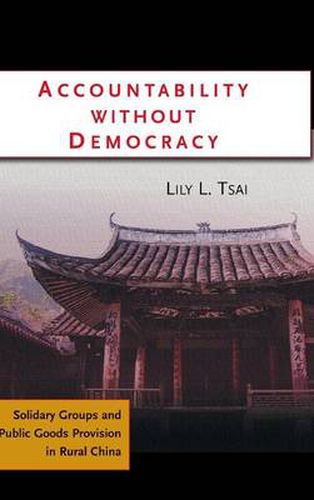Readings Newsletter
Become a Readings Member to make your shopping experience even easier.
Sign in or sign up for free!
You’re not far away from qualifying for FREE standard shipping within Australia
You’ve qualified for FREE standard shipping within Australia
The cart is loading…






Examines the fundamental issue of how citizens get government officials to provide them with the roads, schools, and other public services they need by studying communities in rural China. In authoritarian and transitional systems, formal institutions for holding government officials accountable are often weak. The state often lacks sufficient resources to monitor its officials closely, and citizens are limited in their power to elect officials they believe will perform well and to remove them when they do not. The answer, Lily L. Tsai found, lies in a community’s social institutions. Even when formal democratic and bureaucratic institutions of accountability are weak, government officials can still be subject to informal rules and norms created by community solidary groups that have earned high moral standing in the community.
$9.00 standard shipping within Australia
FREE standard shipping within Australia for orders over $100.00
Express & International shipping calculated at checkout
Examines the fundamental issue of how citizens get government officials to provide them with the roads, schools, and other public services they need by studying communities in rural China. In authoritarian and transitional systems, formal institutions for holding government officials accountable are often weak. The state often lacks sufficient resources to monitor its officials closely, and citizens are limited in their power to elect officials they believe will perform well and to remove them when they do not. The answer, Lily L. Tsai found, lies in a community’s social institutions. Even when formal democratic and bureaucratic institutions of accountability are weak, government officials can still be subject to informal rules and norms created by community solidary groups that have earned high moral standing in the community.